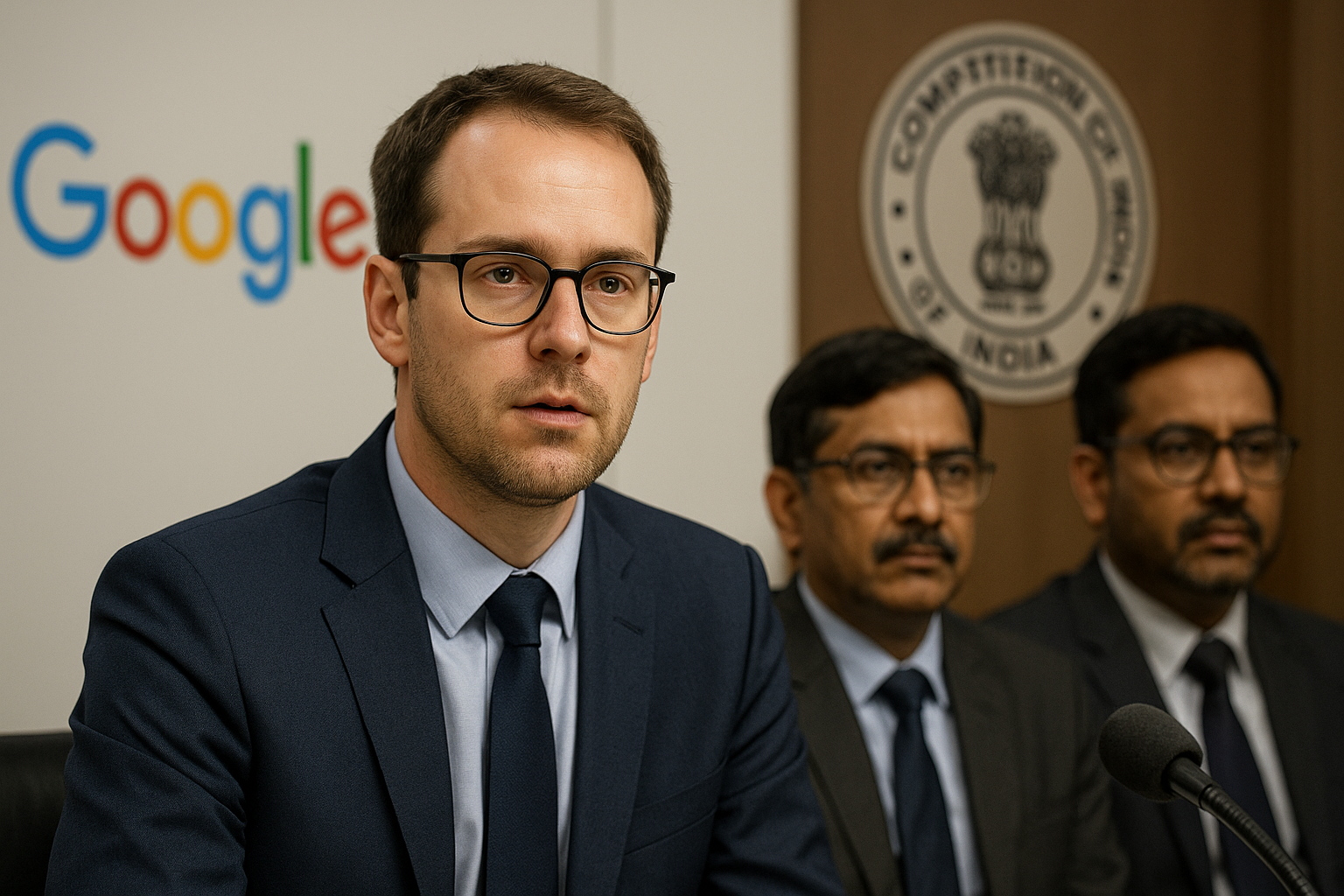Google Settles Android TV Antitrust Case with CCI for ₹20.24 Crore
The informants alleged that Google was misusing its dominant position in the smart TV segment by entering into restrictive agreements with Original Equipment Manufacturers (OEMs).

- Country:
- India
In a significant development in India's competition law landscape, the Competition Commission of India (CCI) has approved a settlement proposal submitted by Google LLC under the newly introduced Competition Commission of India (Settlement) Regulations, 2024. The case revolves around allegations of abuse of dominance in the Android TV operating system ecosystem and has concluded with a settlement amount of ₹20.24 crore, reflecting a 15% discount applied under the regulatory framework.
Background of the Case
The case originated from an information filed under Section 19(1)(a) of the Competition Act, 2002, by Mr. Kshitiz Arya and Mr. Purushottam Anand against Google LLC, Google India Private Limited, Xiaomi Technology India Private Limited, and TCL India Holding Private Limited. The informants alleged that Google was misusing its dominant position in the smart TV segment by entering into restrictive agreements with Original Equipment Manufacturers (OEMs).
These agreements allegedly mandated the compulsory bundling of Google Play Store and Google TV Services with the Android TV operating system. Additionally, Google was accused of using Anti-Fragmentation Agreements (AFAs) to restrict OEMs from developing or distributing forked or incompatible versions of the Android platform. These practices, the informants claimed, blocked market access to rival developers and stifled innovation—violating Section 4 of the Competition Act, which prohibits abuse of a dominant position.
Investigation and Findings
Upon reviewing the initial information, the Commission formed a prima facie opinion that the conduct of Google might amount to contraventions under Sections 3(4) and 4 of the Act. Consequently, it directed the Director General (DG) to conduct a detailed investigation under Section 26(1).
The DG’s investigation report concluded that:
-
Android Smart TV OS holds a dominant position in the relevant market for "licensable Smart TV device operating systems in India."
-
Google Play Store was found dominant in the "market for app stores for Android Smart TV OS in India."
-
Google’s agreements, including the Television App Distribution Agreement (TADA) and Android Compatibility Commitments (ACC), imposed unfair and restrictive conditions on OEMs.
Specifically, OEMs were required to pre-install an entire suite of Google apps (including YouTube and Google Search) to gain access to the Play Store, a classic form of tying. Furthermore, these agreements extended across the OEMs’ entire product portfolios, which reinforced Google’s dominance and deterred the development and promotion of competing software ecosystems.
However, the DG did not find sufficient evidence to support allegations related to refusal to deal or exclusive supply arrangements under Section 3(4).
Settlement Application and Key Reforms
Following the investigation, Google filed a Settlement Application under Section 48A of the Act, leveraging the recently introduced Settlement Regulations, 2024. In accordance with Regulation 5, the CCI invited objections and suggestions from 45 affected or interested parties to the proposed settlement terms.
After thorough evaluation, the Commission accepted Google’s proposal. Key features of the settlement, as highlighted in the CCI’s final order, include:
-
Introduction of a “New India Agreement” under which:
-
Google will offer standalone licenses for the Play Store and Play Services.
-
OEMs are no longer required to bundle Google apps with the Android TV OS.
-
No default placement conditions will be imposed for Google apps on devices.
-
Devices that do not ship with Google apps will not require a valid ACC, allowing OEMs the freedom to develop and market forked Android versions.
-
These changes are aimed at reducing Google’s control over OEM product configurations and enhancing competition in the smart TV operating system market.
Settlement Approval and Monetary Penalty
Considering the gravity, nature, and impact of the contraventions, the Commission accepted the proposal by a majority order. As part of the settlement, Google is required to pay a final amount of ₹20.24 crore, after a 15% reduction granted under the Settlement Regulations.
The Commission emphasized that the outcome of the settlement reflects a balance between regulatory enforcement and market correction. It also marks a significant milestone under India’s new settlement framework introduced by the 2023 amendments to the Competition Act.
Implications for the Indian Tech and OEM Sector
This case is notable for being one of the first significant antitrust settlements approved under the 2024 Settlement Regulations, and sets a precedent for future cases involving digital platforms and their contractual arrangements with manufacturers.
By unbundling its services and easing compatibility constraints, Google’s commitments are expected to:
-
Level the playing field for smaller app developers and OS providers.
-
Encourage OEMs to explore alternative platforms or develop custom ecosystems.
-
Enhance consumer choice in the smart TV market.
-
Promote innovation and competition in digital service ecosystems.
This decision also sends a clear message to other dominant players operating in India’s digital and tech markets about the growing scrutiny from competition authorities.
A public version of the final order passed by the Commission is available on the CCI’s official website.
- READ MORE ON:
- Competition Commission of India
- Android TV










